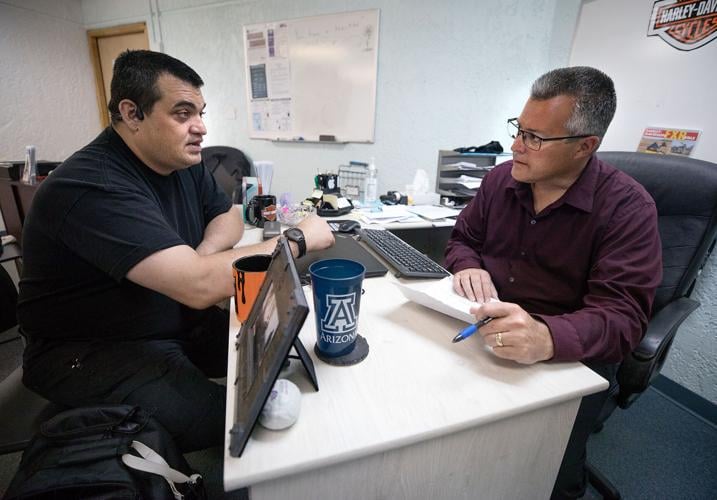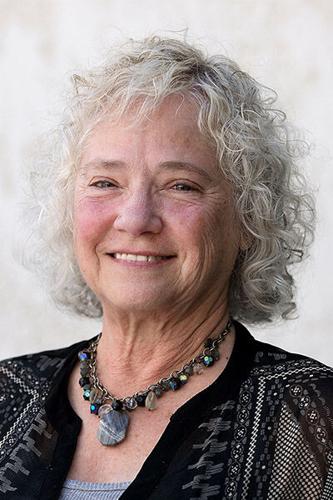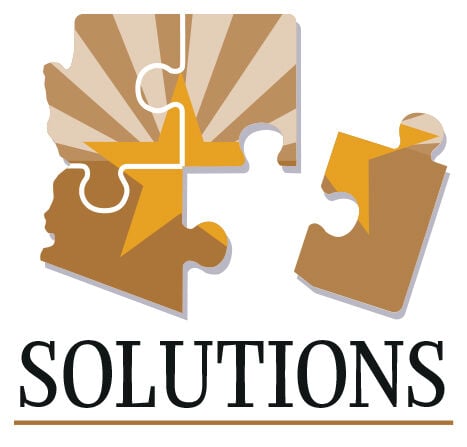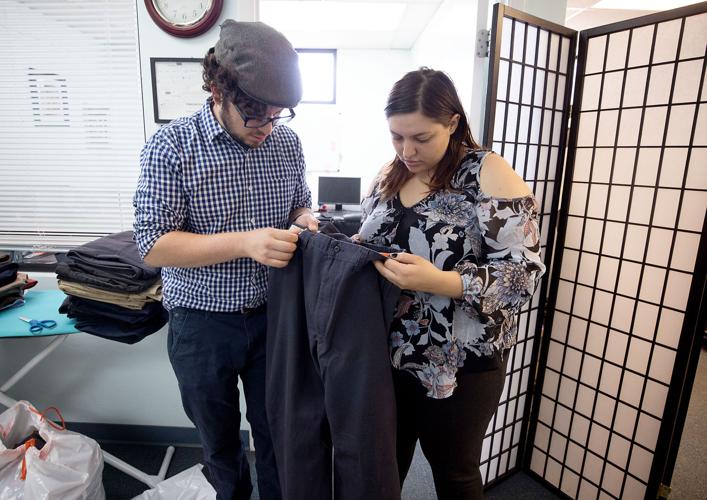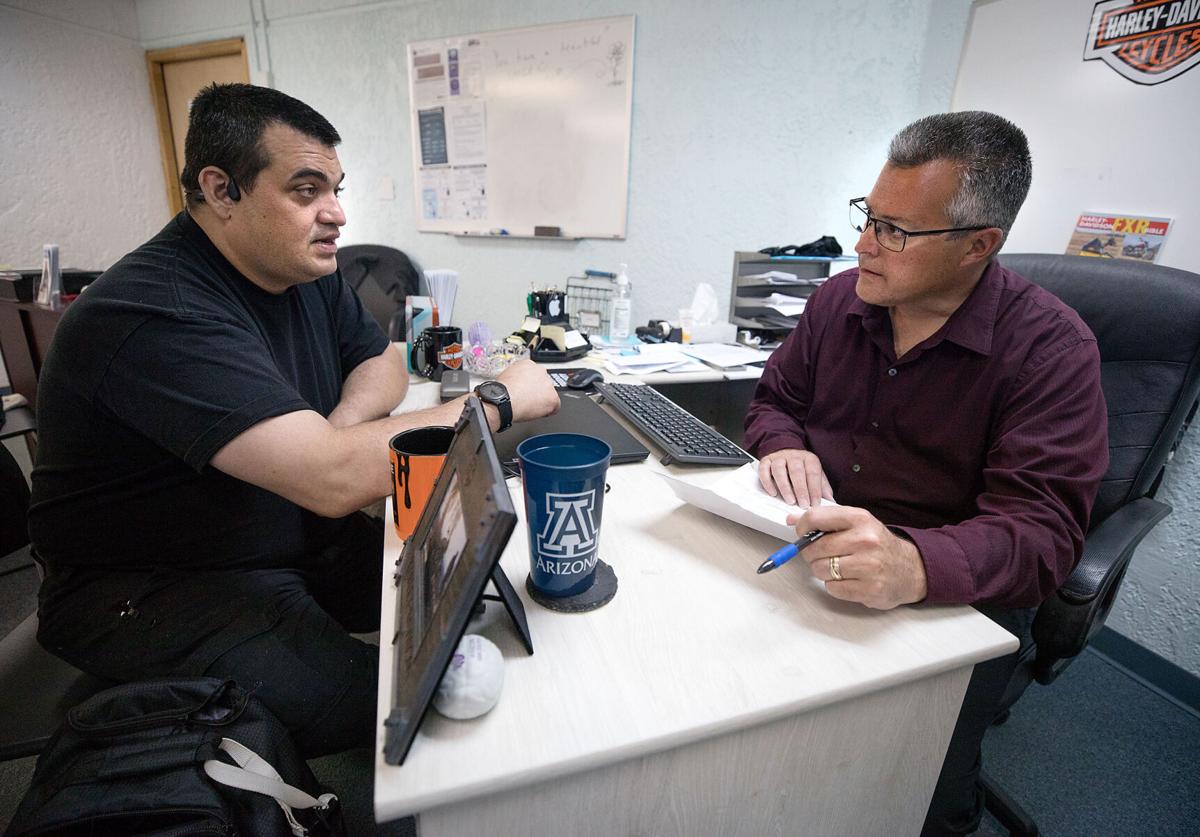A decades-old Tucson employment agency has expanded its services with a pair of programs, one to help people returning from prison and the other for women seeking work in behavioral health.
DKA — Dorothy Kret and Associates — was formed in 1984 with the aim of providing job assistance for vulnerable populations, through services including assessments, training, counseling, development and placement.
When Tucsonan Dorothy "Dot" Kret was attending college in the early 1980s, she was best friends with a man who used a wheelchair. Her experience as his friend and advocate inspired Kret to help empower people with disabilities, said Darius Wentz, outreach coordinator for DKA's Justice Program.
"She felt like he was invisible to the community. Whenever they'd go somewhere, it was like he was ignored," said Wentz. "People wouldn't look him in the eye and they'd just talk to her. It bothered her quite a bit."

Kret was inspired to start her business, founding DKA with the goal of empowering people with disabilities to be successful in life, especially in the areas of employment. Over the years, DKA expanded its services to help people with mental or behavioral health barriers to employment.
In 2021, the agency applied for COVID-19 relief funds from the state’s contracted regional behavioral health authority, Arizona Complete Health, hoping to expand operations to two other populations: people being released from prison and women with lived experience in substance use recovery who are seeking a career in behavioral health.
Their funding was approved in November and the new initiatives, Justice Program and Working With Women, launched March 1.
Intensive case management
Outreach coordinators and support staff for the two new programs quickly got to work to find clients and let community members know about the initiatives and what they offer in terms of extensive support.
"We hit the ground running," said Wentz, who works with people both pre-and post-release in the justice program. "Whatever the barrier or obstacle that our client partner is facing, we work one-on-one with them to overcome that."
Wentz described the process as "intensive case management" that addresses more than just employment. For Wentz's client partners coming out of prison, housing is a big issue and he works hard to provide plenty of options.
"It might be a substance abuse issue or it could be a variety of things. Whatever the need, we work with that individual to overcome it," Wentz said.
Wentz had his own brush with the justice system years ago, barely avoiding a prison term for a drug charge in Missouri.
"I kind of understand how these families feel," said Wentz, who has spent years working with groups that work with prisons.
"I love my job and I can't wait to get here every morning," he said.
One of Wentz's first ideas for DKA's Justice Program is a men's clothes closet stocked with professional attire for job interviews or work.
"There are plenty of those in Tucson for women, but none for men," Wentz said.
Now, Dress for Success: Men's Wardrobe is available to Justice Program client partners and other men in the community, with free clothing for those in need.
"We've only been working on that for a couple of months, so it's not huge," Wentz said of the closet. "But if I don't have it, I'll find it. If someone has a job interview tomorrow, I'll find a way to get it."

David Lex, administrative assistant, left, and Shay Harris, a media and resource navigator at DKA, Dorothy Kret and Associates, sort through donated clothing within the Dress for Success men’s wardrobe area.
Before starting with DKA in the spring, Wentz worked as a pastor, a police chaplain and spent the better part of 25 years in broadcast journalism.
As part of his position at DKA, Wentz travels to prisons across the state, speaking to inmates and corrections officers about Justice Program and working with people while they're still incarcerated whenever possible.
"That way, by the time they're paroled, we're already moving," Wentz said. "We're partnering with people to improve their lives. That goes right back to what DKA is trying to do."
Similar to Kret's friend who used a wheelchair, people in and coming out of prison can often seem invisible, Wentz said.
"We want them visible and getting what they need," he said. "I'm here to champion their cause, whatever that looks like. It's uniquely and individually tailored for that person. Every person has different needs and goals. The cookie cutter approach just doesn't work."
Wentz has already enrolled close to 60 client partners in Justice Program's first few months.
"Coming in here, I had goals. I've met the immediate goals, but the long-term goals of making a greater impact on people's lives, seeing them grow emotionally and financially in life and develop that stability, that's going to take time," he said. "We're invested in that."
Certification and support
The grant DKA received for its Working With Women program focused around substance abuse, leading to creation of the program for women interested in the behavioral health field. The primary goal is to get clients certified and employed as a recovery or peer support specialist, said outreach coordinator Raeleen Francisco.
The program is geared towards women who have a personal history of substance use and recovery, but the program is also open to woman with lived experience in a different capacity.

Dorothy “Dot” Kret, chief executive officer and founder of DKA, Dorothy Kret and Associates.
"Maybe you have a mom, dad, brother, sister or someone close to you that you went through that hardship with. You just have to have that lived experience," Francisco said. "The population they'll be working with are individuals that have their own addiction and want the same help, so it's important to recognize when you can be that peer and truly understand what that person needs."
The program provides support to clients by helping them find and succeed in local recovery support specialist training programs, and if needed, basic or continuing education.
Additional associated services, whether they be medical or behavioral, are free to clients, with DKA billing the Arizona Health Care Cost Containment System, the state's Medicaid System.
Working With Women's growth is a bit slower than the Justice Program's so far. Francisco said she currently has nine clients, but six others have completed the program. Four have already gone on to secure jobs in peer support.
There's also been some overlap with the Justice Program, with many people getting out of prison interested in becoming a recovery peer, Francisco said.
Training for participants is covered by insurance, and the program will work with clients who want to go beyond the basic certification.
"We can assist in schooling if they want to get a certificate or a bachelor's or associate's degree," Francisco said. "We can follow them through the steps that way and be there and support them.
Francisco also connects clients with resources as needed, whether it be housing, child care or other types of assistance. Professional clothing is the most requested item, with Francisco referring clients to Eagles Wings of Grace or My Sister's Closet, depending on their location.
"Every situation that comes our way, we'll deal with it the best we can," she said. "A lot of people when they come in, they don't even know where to start. But once they're in our program, we're there for them."
Francisco has seen the justice system from the inside and out, as she previously worked as a corrections officer at a prison and then a case manager with minors in detention, probation and diversion on a reservation.
"It's great that DKA has started this program," for "those who need that extra support, courage or strength to move on," Francisco said.


